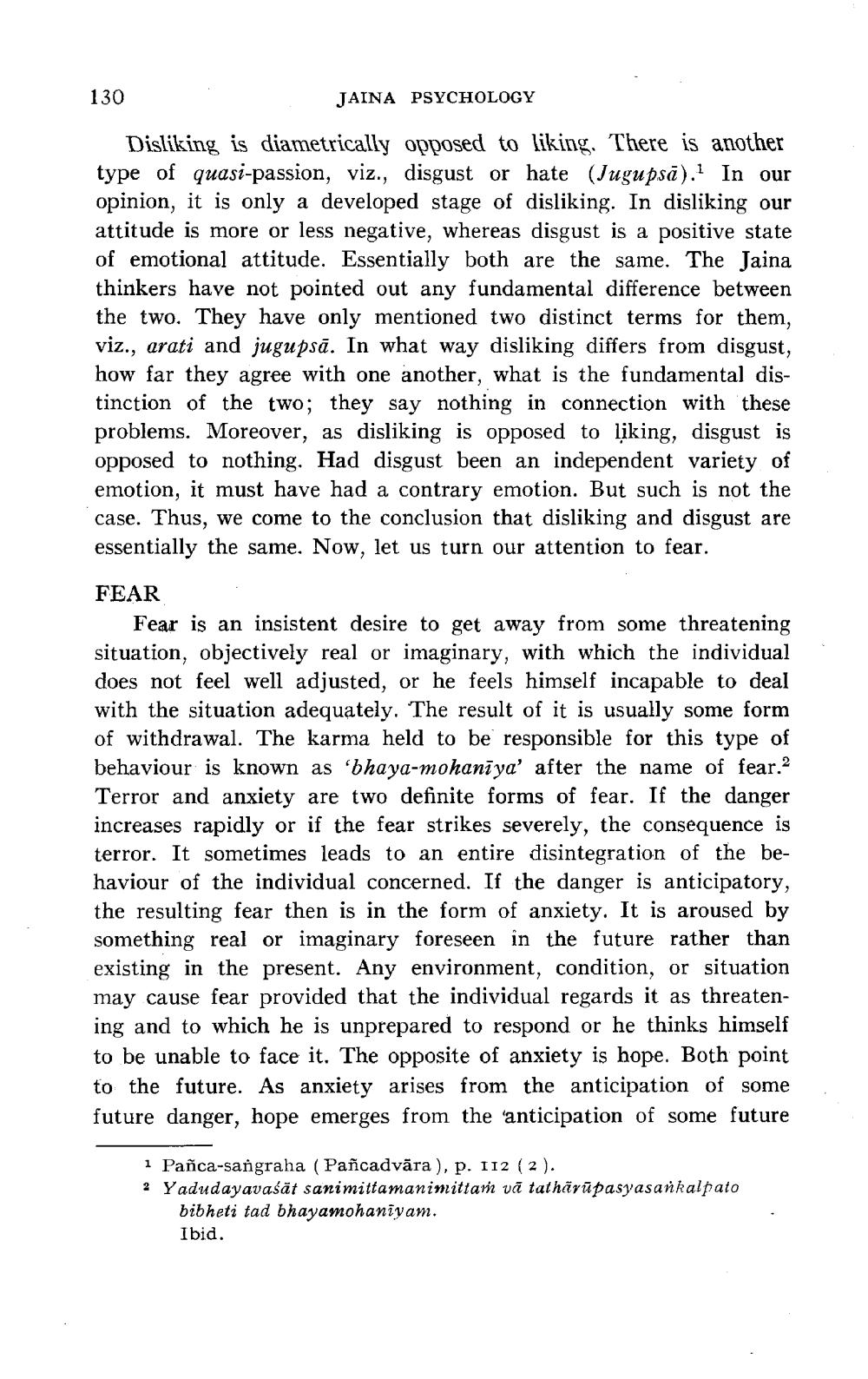________________
130
JAINA PSYCHOLOGY
Disliking is diametrically opposed to liking. There is another type of quasi-passion, viz., disgust or hate (Jugupsā). In our opinion, it is only a developed stage of disliking. In disliking our attitude is more or less negative, whereas disgust is a positive state of emotional attitude. Essentially both are the same. The Jaina thinkers have not pointed out any fundamental difference between the two. They have only mentioned two distinct terms for them, viz., arati and jugupsā. In what way disliking differs from disgust, how far they agree with one another, what is the fundamental distinction of the two; they say nothing in connection with these problems. Moreover, as disliking is opposed to lįking, disgust is opposed to nothing. Had disgust been an independent variety of emotion, it must have had a contrary emotion. But such is not the case. Thus, we come to the conclusion that disliking and disgust are essentially the same. Now, let us turn our attention to fear
FEAR
Fear is an insistent desire to get away from some threatening situation, objectively real or imaginary, with which the individual does not feel well adjusted, or he feels himself incapable to deal with the situation adequately. The result of it is usually some form of withdrawal. The karma held to be responsible for this type of behaviour is known as 'bhaya-mohanīya' after the name of fear.2 Terror and anxiety are two definite forms of fear. If the danger increases rapidly or if the fear strikes severely, the consequence is
It sometimes leads to an entire disintegration of the behaviour of the individual concerned. If the danger is anticipatory, the resulting fear then is in the form of anxiety. It is aroused by something real or imaginary foreseen in the future rather than existing in the present. Any environment, condition, or situation may cause fear provided that the individual regards it as threatening and to which he is unprepared to respond or he thinks himself to be unable to face it. The opposite of anxiety is hope. Both point to the future. As anxiety arises from the anticipation of some future danger, hope emerges from the anticipation of some future
1 Pañca-sangraha (Pañcadvāra ), p. 112 ( 2 ). 2 Yadudayavaśāt sanimittamanimittam vā tathārūpasyasankalpato
bibheti tad bhayamohaniyam. Ibid.




